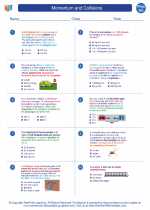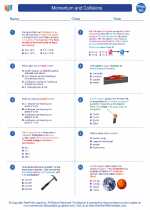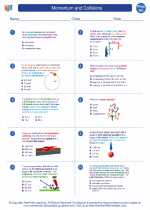Aggression
Aggression is a complex behavior that involves the intention to cause harm or pain to another individual. It can be physical, verbal, relational, or indirect, and can occur in a variety of contexts including interpersonal relationships, sports, and even in the animal kingdom.
Causes of Aggression
There are several factors that can contribute to aggressive behavior:
- Biological Factors: Genetics, brain structure, and neurotransmitter imbalances can play a role in predisposing individuals to aggression.
- Environmental Factors: Stress, exposure to violence, and social learning can influence aggressive tendencies.
- Social and Cultural Factors: Norms, values, and cultural practices can impact the expression of aggression within a society.
Theories of Aggression
Psychologists have proposed different theories to explain the causes of aggression:
- Instinct Theory: This theory suggests that aggression is an innate, biological drive that serves as a means of survival or dominance.
- Social Learning Theory: According to this theory, aggression is learned through observation, modeling, and reinforcement from the environment.
- Cognitive Neoassociation Model: This model proposes that aggression is influenced by cognitive processes such as perception, interpretation, and decision-making.
Effects of Aggression
Aggressive behavior can have far-reaching consequences, including:
- Physical harm and injury to the victim.
- Psychological trauma and emotional distress for both the aggressor and the victim.
- Social repercussions such as damaged relationships and legal consequences.
- Long-term impact on mental health and well-being.
Managing Aggression
There are various strategies for managing and reducing aggression:
- Anger Management Techniques: Teaching individuals to recognize and control their emotions through relaxation, problem-solving, and communication skills.
- Conflict Resolution: Training in negotiation, mediation, and peaceful conflict resolution methods.
- Social and Emotional Learning: Education programs that promote empathy, self-awareness, and relationship building.
Study Guide
When studying aggression, it is important to focus on the following key areas:
- Understand the different forms of aggression and their characteristics.
- Explore the biological, environmental, and social factors that contribute to aggression.
- Compare and contrast the various theories of aggression proposed by psychologists.
- Analyze the effects of aggressive behavior on individuals and society as a whole.
- Examine the strategies and interventions for managing and reducing aggression in different contexts.
By mastering these concepts, students can gain a comprehensive understanding of aggression and its impact on human behavior and interactions.
.◂Physics Worksheets and Study Guides High School. Momentum and Collisions

 Worksheet/Answer key
Worksheet/Answer key
 Worksheet/Answer key
Worksheet/Answer key
